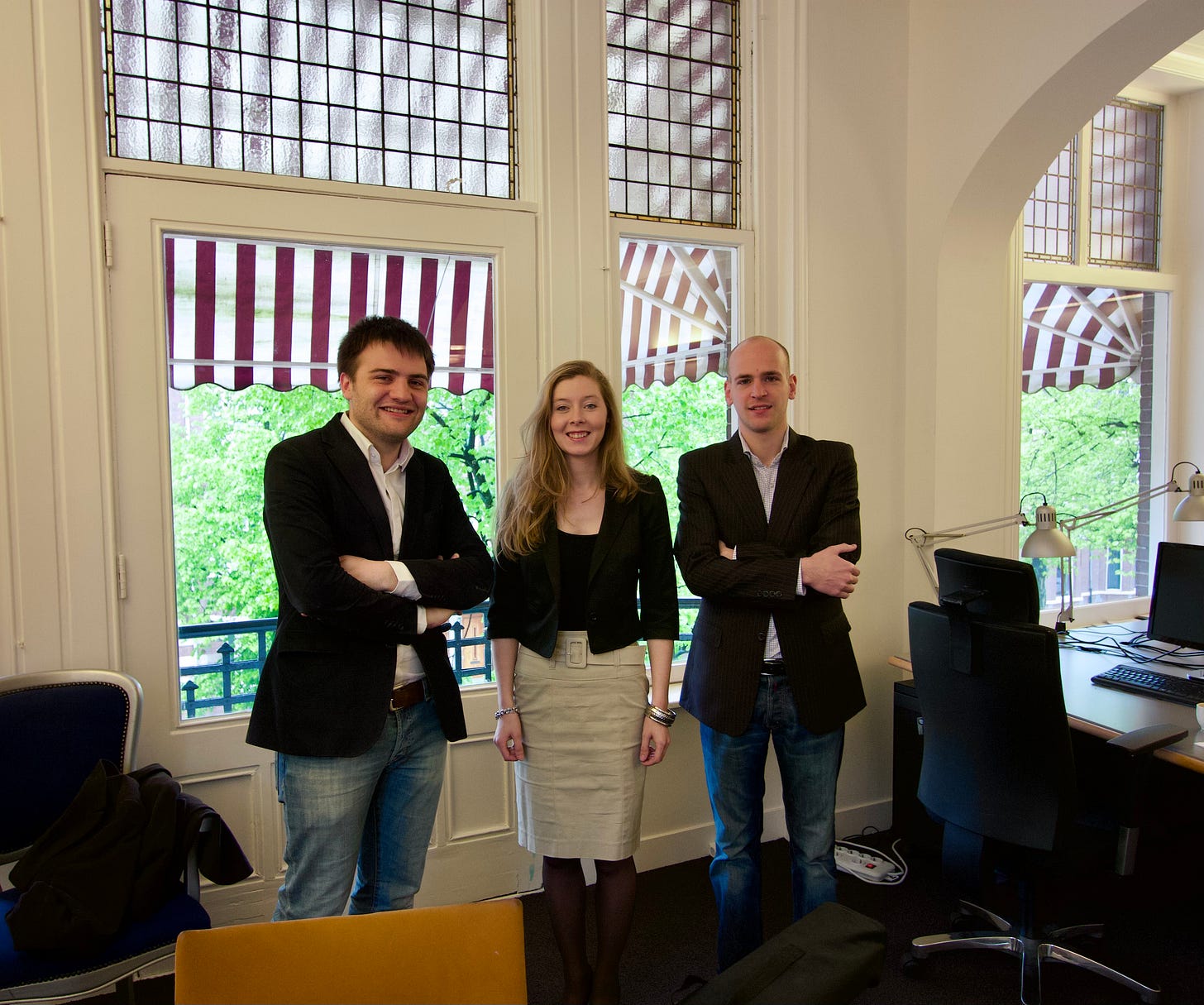Reconciling with being a generalist
The pros and cons of never really being very good at anything
Happy Sunday!
Well, it’s actually Monday in most places where you’ll read this, but I’m just sending my letter to you now because I spent the entire day driving around the Netherlands, visiting family and friends.
As I often do when I drive long-distance, I listened to podcasts. I never follow any particular podcasts, but I do enjoy listening to people I know, and occasionally, to conversations on topics I find interesting. In my daily routine in Sofia, I can’t find moments for that, so I save those episodes up for when I do long drives.
Yesterday, one of the episodes I listened to was a Dutch podcast on criminal law, De Staat van het Strafrecht, which is co-hosted by my old university friend Margje van Weerden, a former attorney and currently a leading expert on law enforcement and criminal proceedings in the Netherlands. With her co-presenter, Margje discusses complicated cases and Dutch criminal justice reform, in a light-hearted tone, making the rather difficult and often dull topic accessible, digestible, and relatable to the general audience.
As I listened, somewhat marveling that I still remember and understand a bunch from my law school days about the way criminal justice works in the Netherlands, I realized again how much I always admire and respect people who are true specialists at something, like Margje.
I am not one of them, I am an absolute generalist. Whether it comes from a rich childhood of overexposure to different cultures, or my short attention span and tendency to procrastinate, I have always consistently made choices that steered me away from becoming a real professional specialist on any topic.
When I decided to study law, I did it because many successful people in arts, media, journalism, and politics studied law. When it was time to specialize, I chose international law, because it’s the least legal of all specialities. When the time came to apply for jobs, I went for the easiest and nicest-looking ones. And today, many of my friends and coworkers joke that my next VC fund should be called “Shallow Ventures”. I love you all for that ❤️😂
Truth is, as you get older, it’s easier to be a generalist. Life expects of you to be able to see the bigger picture and to steer things in certain directions, whether personally, professionally, or publicly. As one of my first bosses used to say, “in your twenties you learn, in your thirties you practice, and in your forties, you actually do things”. He was very much a generalist, and 45 at the time, so I’m still waiting to hear what happens in your fifties, sixties, and seventies:)
But being a generalist also comes with drawbacks. Because we lack expertise, we’re less independent. Because of our vague job descriptions, we’re easily replaceable. And because we work across topics, teams, and projects, we burn out much faster than specialists. I don’t think I have ever had a burnout, but I know a few times when I came close, and I’ve watched so many industry colleagues and friends go through bad ones, that I’m always aware of the risk, prioritizing idle times and off-work routines consistently.
When I was younger I did have many moments when I doubted if opting for hopping jobs and high-level projects was the right choice, over detail, specialization, and dedication. In my twenties, I often envied friends who landed better positions, or got awards and recognition for their work. I’ve also seen many fellow generalists trying to pretend to specialize in something, and it was usually a sorry sight. Around my 30th I decided I’ll just continue on the generalist path, bring it what may.
And it’s been good, I have to admit. I guess whatever we chose twenty years ago, as time goes by we settle into it and make it our own. Of course, landing in startups and VC helped as well, as there are few areas of work as skewed towards generalists as being a founder or an investor.

Let’s see what the next decade brings. The good thing about getting older is that I feel less need to care or worry about things, or about what people think. But I do wonder if I can still do what I do when I inevitably become even less flexible that I am today. Will I miss out on some trend? Will a skill be needed that I so gleefully chose to ignore when I still could’ve mastered it?
Time will tell, but so far so good, and it feels good to be comfortable with the choices I have made and where they have taken me thus far, as I turn 40.
On to the next decade!


Keep going 🥳